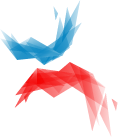Draft:Main Page

WIKIMANIA
LONDON 2014
Imagine a world in which every single person on the planet is given free access to the sum of all human knowledge
| Registration |
| Subscribe for updates | |||
 |
 |
 |

|
| Fringe: from May 2014 | Hackathon: 6–10 August 2014 | Programme: 8–10 August 2014 |
Deadline for Submissions: 31 March 2014
What is Wikimania?
Wikimania is a 4000-person conference, unconference, festival, meetup, workshop, hackathon, and party, spread over five days in August 2014, preceded and followed by fringe events. It's the official annual event of the Wikimedia movement, where you'll discover all kinds of projects that people are making with wikis and open content, as well as meet the community that produced the most famous wiki of all, Wikipedia!
The main event itself is held in and around The Barbican Centre in London, UK. All are welcome, whether you're an expert, enthusiast, beginner or just curious!
State of the Wiki
An annual update on the Wikimedia projects
Wikipedia is a household name — in fact, it’s now one of the five most popular websites in the world, clocking over 21 billion hits every month. With over 110m pages across 287 languages, and a dozen sister projects including dictionaries, newspapers, multimedia repositories and travelguides, it's come a long way since its founding in 2001; the community has grown, the technology has developed, and the organisation has matured. However, there are still sweeping changes to come. more…
-
Jimmy Wales
Co-founder of Wikipedia -
Sue Gardner
Executive Director of the Wikimedia Foundation
Social Machines
How can online communities unlock humanity's potential?
Once upon a time 'machines' were programmed by programmers and used by users. The success of the Web has changed this relationship: we now see configurations of people interacting with content and with each other, blurring the line between computations performed by machine logic and algorithms, and those that result from input by humans, arising from their own psychological processes and life experience. Rather than drawing a line through such Web-based systems to separate the human and digital parts (as computer science has traditionally done), we can now draw a line around them and treat each such compound as a `social machine', a machine in which the two aspects are seamlessly interwoven.[1] Of course Wikipedia is one of these, but what others? How can such systems be designed from scratch, and to what ends? more…
-
Clay Shirky
Author of "Cognitive Surplus" -
Brandon Harris
Senior Designer at the Wikimedia Foundation -
Yaneer Bar-Yam
President of The New England Complex Systems Institute -
Raph Koster
Virtual Community Designer
The Future of Education
Now that Wikipedia's done everyone's homework, what's left to teach?
To the exasperation of many teachers, Wikipedia is the first port of call for millions of students from primary school to university. Its sheer convenience is challenging standard pedagogical approaches that implicitly assume information is scarce and difficult to duplicate. What if teachers asked students to contribute to Wikipedia instead? more…
-
David White
R&D lead for Technology Assisted Learning Group at Oxford University -
Clare Sutcliffe
CEO of Code Club -
Emma Mulqueeny
Founder of Rewired State -
Diana Strassman
Chair of The Board of The Wiki Education Foundation
Free Culture
The sum total of human knowledge shouldn't be owned by anyone. How can we ensure this?
If you create something original, you're automatically granted legal ownership over it, which inhibits others from re-using it without your permission. Wikimedia embraces the idea of the creative commons, a body of work which anyone can adopt, adapt, improve and contribute to — however, this is legally more complicated than it sounds, and besides most of global culture is still tied up in a tangle of different licenses relating to different legal rules operating in different territories. more…
-
Lawrence Lessig
Author of "Free Culture" -
Danny O'Brien
Director of the Electronic Frontier Foundation -
Luis Villa
Deputy General Counsel at The Wikimedia Foundation -
Dan Gillmor
Author of "Mediactive"
Open Scholarship
What happens when the cutting edge of human knowledge is available to all?
In 2013 alone over 500,000 pieces of scholarly research were made open access, across all disciplines — an unprecedented number. These are all citable in Wikipedia, meaning they can be integrated into the encyclopaedia, contextualised and made discoverable by anyone in the world with an internet connection. This level of accessibility of cutting edge research has never existed before in history, and the possible outcome of empowering citizen scientists and opening up academia in this way is beyond reckoning. more…
-
Jack Andraka
Citizen Scientist & Inventor -
Elizabeth Marincola
CEO of The Public Library of Science -
Peter Murray-Rust
Shuttleworth Fellow in Machine Readable Open Access
Open Data
What can we build when the sum of all human knowledge is machine readable?
Wikidata is a new project of the Wikimedia Foundation: a free, collaborative, multilingual, secondary database, collecting structured data to provide support for Wikipedia, Wikimedia Commons, the other Wikimedia projects, and well beyond that. This may become one of the best open data repositories on Earth — what can we do with it? more…
-
Rufus Pollock
Co-Founder of the Open Knowledge Foundation -
Lydia Pintscher
Wikidata Product Manager -
Viktor Mayer-Schönberger
Professor at the Oxford Internet Institute
Partners and sponsors
| & |
If you are interested in sponsoring Wikimania, please contact ed@wikimanialondon.org
References
- ↑ Towards a classification framework for social machines Nigel Shadbolt, Daniel Alexander Smith, Elena Simperl, Max Van Kleek, Yang Yang, Wendy Hall, Web and Internet Science Group, University of Southampton, UK
































